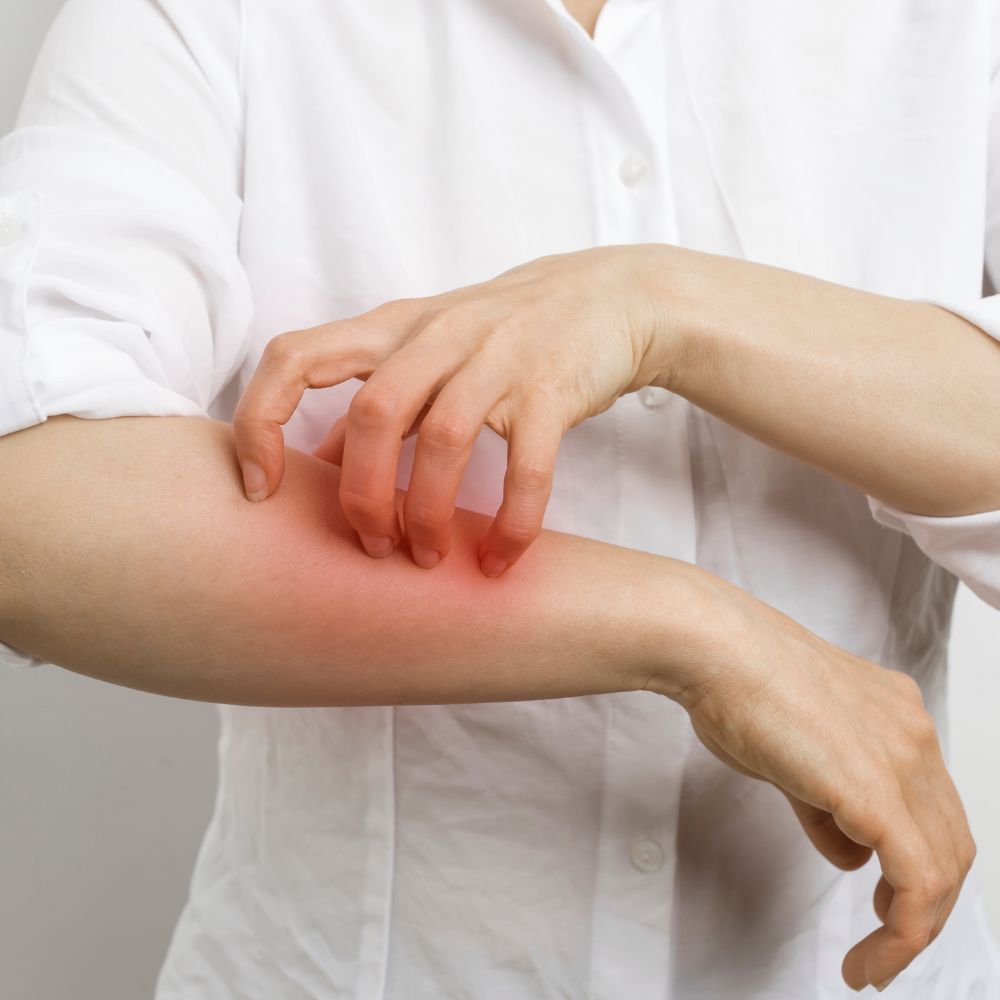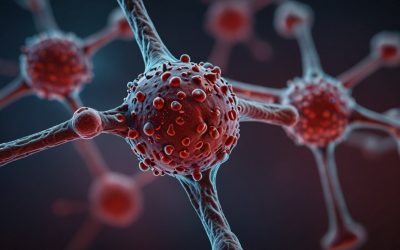Allergies are a common problem that many people have. They happen when our immune system overreacts to certain things like pollen, animals, or dust mites. These reactions can cause symptoms like sneezing, itching, or a runny nose. In this article, we’ll learn about different types of allergies, their symptoms, and how to manage them. We’ll also talk about the complications of allergies and how doctors diagnose and treat them. By understanding allergies better, we can make better choices for our health.
What is the Immune System?
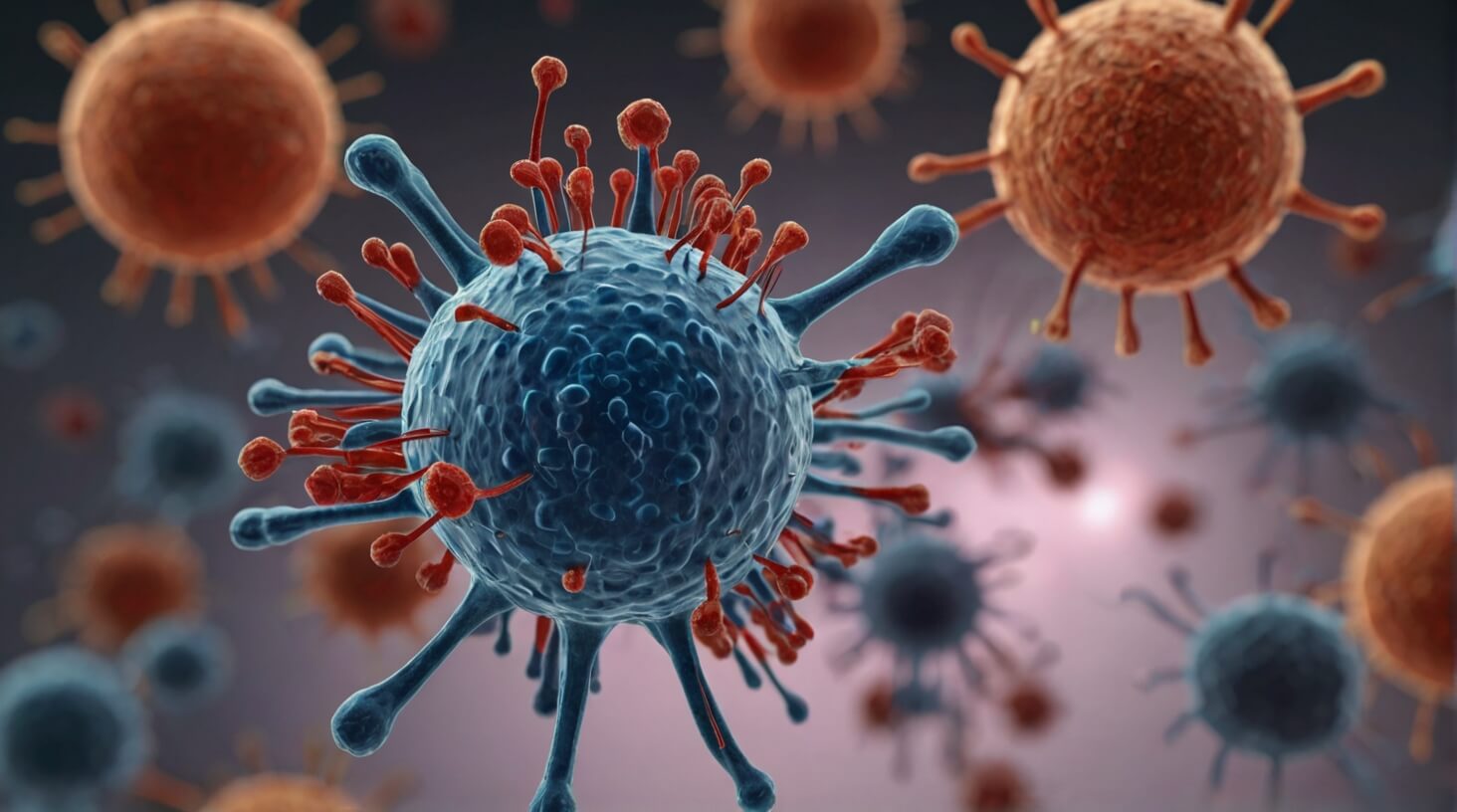
Our immune system is like a superhero that keeps us healthy and protected. It’s made up of different parts like organs, cells, and proteins that work together to fight off germs and keep us safe. There are two main parts: innate immunity and acquired immunity. Innate immunity is there from the beginning and helps us resist germs. Acquired immunity happens when our body learns to fight off specific germs after exposure to them.
Our immune system has special cells that can recognize and destroy germs and other harmful things in our body. They act like superheroes, swallowing up the bad guys and getting rid of them. Our immune system is always working to keep us safe, even when we don’t realize it. It helps us stay healthy and fight off diseases. With a strong immune system, we can enjoy life without worrying too much about getting sick.
What Causes Allergies?
Allergies happen when our body’s defenses react too much to things like pollen, pet hair, or certain foods that are safe. Genetic factors and environmental triggers can contribute to the development of allergies. For treatment, it depends on the type and severity of the allergy. Medications can help reduce inflammation and control symptoms. Severe cases may need emergency medical attention. To handle allergies, people should find out what causes them and take medicine as the doctor tells them to feel better.
What Are the Different Types of Allergies?
Do you have symptoms like sneezing, coughing, itchy eyes, hives, or a rash? If you do, it’s possible that you have an allergy – and there are different kinds! Allergies happen when your immune system reacts to things in the environment. Your genes can cause this reaction, and it can range from mild to severe.
Some allergies are when your body reacts to things like pollen in the air, certain foods, certain medications, and things that touch your skin.
If you have allergies, you may have different symptoms depending on what you’re allergic to. Some symptoms include sneezing, itching, rashes, trouble breathing, or stomach pain.
To find out what kind of allergy you have and how to deal with it, it’s important to see a doctor who knows about allergies. They can do tests on your skin or blood and give you advice on how to avoid things that make you have symptoms. They can also suggest medicine to help make your symptoms better.
What are the Common Symptoms of Allergies?
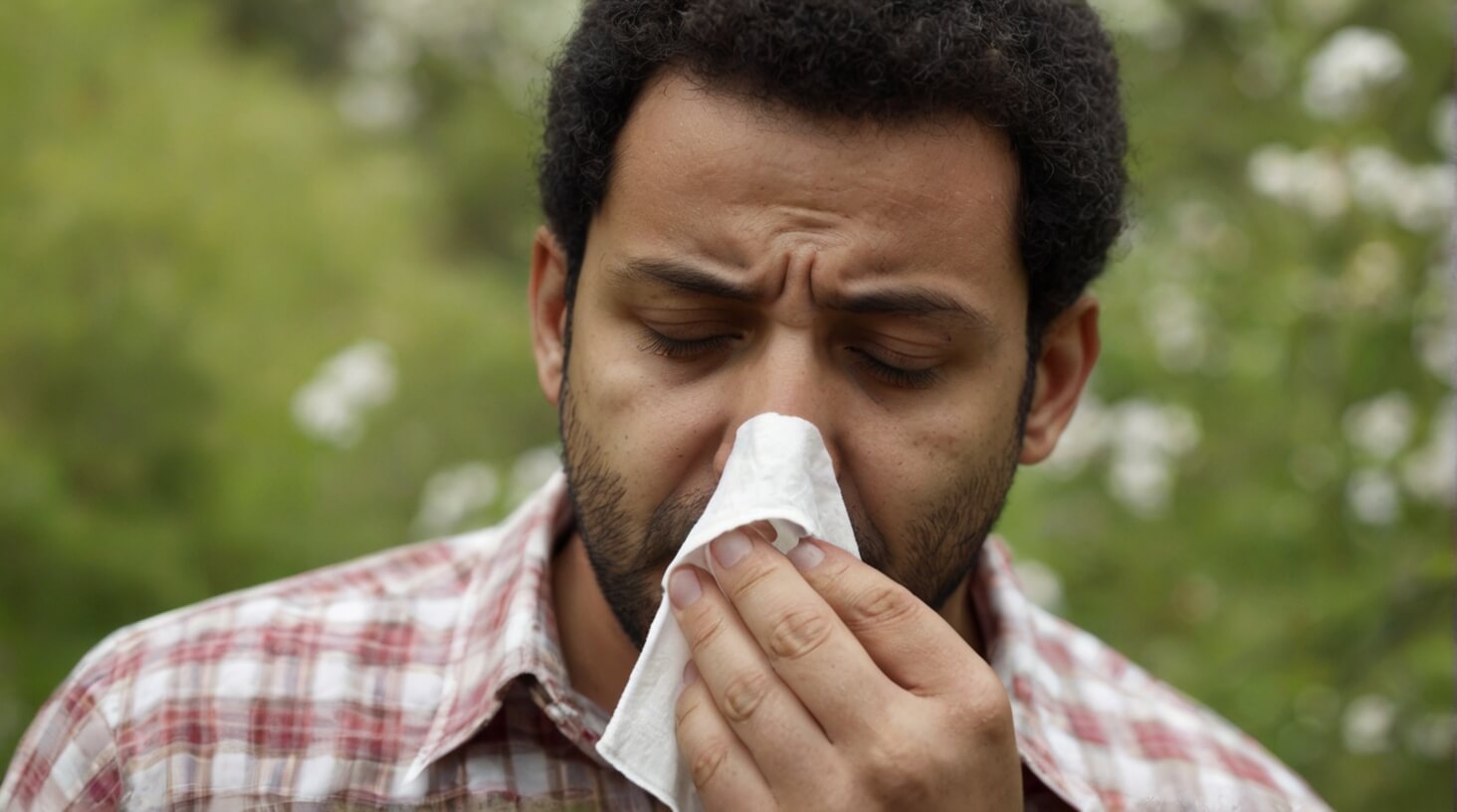
If you have an allergy, you might feel uncomfortable with symptoms like sneezing, coughing, watery eyes, hives, or a rash. Allergies happen when your immune system reacts to things like pet fur, pollen, or dust mites. Certain foods can cause allergies and make you feel sick with symptoms like nausea or stomach pain. It happens because your body thinks these things are harmful.
The most common symptom of allergies is itching, which can be in your nose, throat, or wherever the allergen touches your body. After itching, you might start sneezing a lot and have a runny nose as your body tries to get rid of the thing that’s bothering you. Swelling in your throat or mouth can be very dangerous and you should get help right away. Other symptoms include trouble breathing, headaches, feeling tired, and even dizziness or fainting.
It’s important to know what triggers your allergies so you can try to avoid them and lessen their effects on your body. If you know what might cause your allergies, you can plan and be ready, like during certain times of the year when there’s more pollen in the air. To avoid feeling sick from allergies, it’s best to stay away from things that make you feel bad. But if you can’t avoid them, your doctor can give you medicine to make you feel better so you can still do your normal activities.
How are Allergies Diagnosed?
Doctors use different tests to diagnose allergies. These tests include skin prick tests, patch testing, blood tests, and elimination diets. Each test has a specific purpose:
- Skin prick tests help doctors find out what causes allergic reactions by putting a tiny bit of allergen on the skin.
- Patch testing uses a sticky patch to check if you have a delayed-type allergic reaction to common allergens.
- Blood tests measure the levels of IgE antibodies in response to specific allergens.
- Elimination diets involve avoiding certain foods and then bringing them back to see if there are any changes in symptoms.
Doctors can figure out if someone has an allergy by looking at how their immune system reacts. Then they can make a plan to help, like giving medicine or suggesting changes to their lifestyle. Allergy testing helps people manage their allergies and live more carefree.
How are Allergies Treated?
Treating allergies can be tricky, but with the right plan, you can feel better and get back to your normal life! Allergies happen when your immune system reacts too much to something harmless, like pollen or pet fur. One of the best ways to treat allergies is to prevent them. To treat allergies, you should try to stay away from things that make you allergic. This means keeping windows closed when there’s a lot of pollen and keeping your house clean.
Besides prevention, there are natural remedies that can help ease allergy symptoms. Eating foods with vitamins and minerals like A, C, E, zinc, and magnesium can help reduce inflammation and boost your immune system. Some herbs and supplements like nettle root extract or quercetin can also help with sneezing and itching caused by allergies. Probiotics, which are good bacteria, can strengthen your immune system so it doesn’t overreact to allergens.
If your allergies are more severe, there are other treatments available. Antihistamines and decongestants can help with allergy symptoms, but make sure to use them and follow your doctor’s advice. Before trying any treatment, it’s always a good idea to talk to a doctor who can help you figure out the best options for you and make sure you’re safe.
Remember, with the right treatment, you can manage your allergies and start feeling better!
What are the Complications of Allergies?
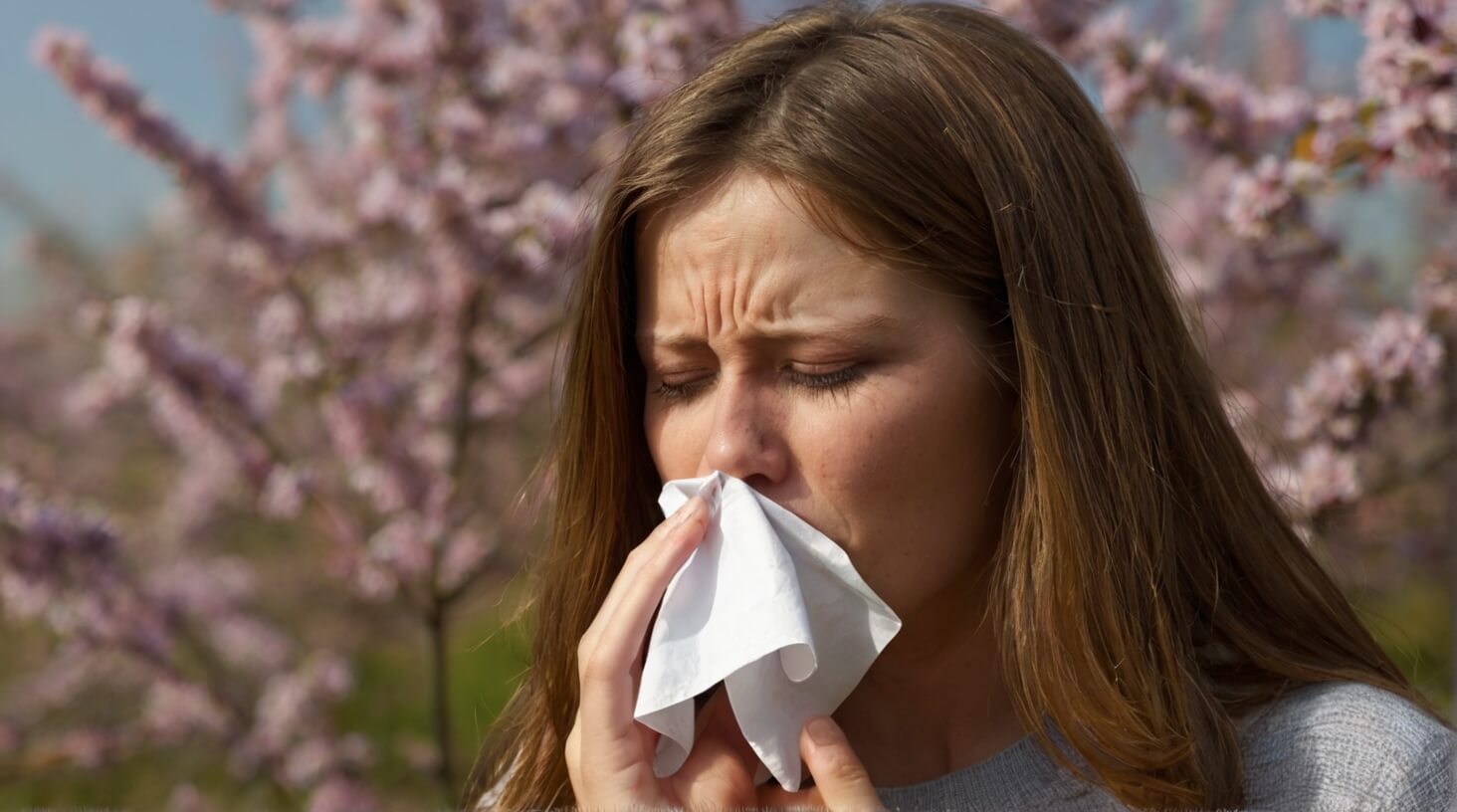
Allergies can cause serious problems if not treated. They happen when your body reacts to things like pollen or pet fur. This reaction can lead to symptoms like sneezing, itching, watery eyes, rashes, and trouble breathing.
If you don’t treat allergies, they can worsen and lead to complications. For example, they can lead to asthma attacks which make it hard to breathe. In some cases, allergies can even cause a life-threatening reaction called anaphylaxis.
If you’re around things that make you allergic for a long time, it can cause ongoing problems like ear infections and sinusitis. These problems can keep coming back and get worse over time.
To take care of allergies, it’s good to know what things make you allergic so you can stay away from them if you can. If you have a bad reaction, it’s important to get help right away. It’s also good to learn the signs of a serious allergic reaction so you can do things to make it less likely to happen again.
Frequent-Asked Questions
How can I reduce my risk of developing allergies?
To lower the chance of getting allergies, stay away from things that cause them and get treatments called immunotherapy. Allergens like pollen, dust mites, pet dander, mold, and certain foods can cause allergic reactions in people who are sensitive to them. To avoid these triggers, you should figure out which allergens bother you and find ways to stay away from them. Immunotherapy treatments, like allergy shots or tablets, help your body get used to allergens over time. This can make your symptoms better if you have allergies to things in the air or certain foods. By taking these steps and getting immunotherapy, you can reduce the risk of getting allergies.
Are there any natural remedies for allergies?
You might feel better from allergies by managing stress and knowing the pollen count in your area.
For example, Jane had bad allergies for a long time until she realized that stress made them worse. She did breathing exercises and practiced mindfulness to relax, and her allergy symptoms improved. She checked the pollen count often, so she could be careful on days with lots of pollen. By doing these things and being aware of her environment, Jane was able to manage her allergies without needing any medicine.
Are allergies hereditary?
Yes, families can pass down allergies. Some studies have found that certain genes in families increase the likelihood of having allergies. This means that if someone in your family has allergies, you might be more likely to have them too. It’s not genes that can cause allergies, though. Things in the environment, like things you breathe in or touch, can also play a part in developing allergies.
Does my age affect my chances of developing allergies?
Your age can affect how likely you are to have allergies. Certain things in the environment, like certain foods, pollen, and pet dander, can cause an imbalance in your immune system. This imbalance leads to inflammation and allergy symptoms. The younger you are when you come into contact with these things, the higher the chance of developing an allergy. Older people may see their allergies get worse because their immune systems aren’t as strong. It’s important to be aware of things that can cause allergies and take steps early in life to lower your chances of having an allergic reaction.
What dietary changes can I make to help manage my allergies?
Changing what you eat can help you control your allergies and make your symptoms less severe. One way to do this is by taking supplements that support your immune system. Pay attention to things in your home and workplace that might be causing more allergens in the air. Try to limit your exposure to something you know you’re allergic to. Eating a balanced diet with lots of fruits, vegetables, and healthy fats is good for your health and might help improve your allergy symptoms.
The immune system and allergies have a connection. Allergies can bother you, but you can manage them and make them less bothersome. When you get the proper diagnosis and treatment, you can handle your allergies better and they won’t interfere with your daily life as much. It’s like putting a puzzle together: when you have all the information about your allergies, you’ll be more ready to deal with any problems that come up. So don’t let allergies stop you from enjoying life—learn about them and find ways to fight back!

